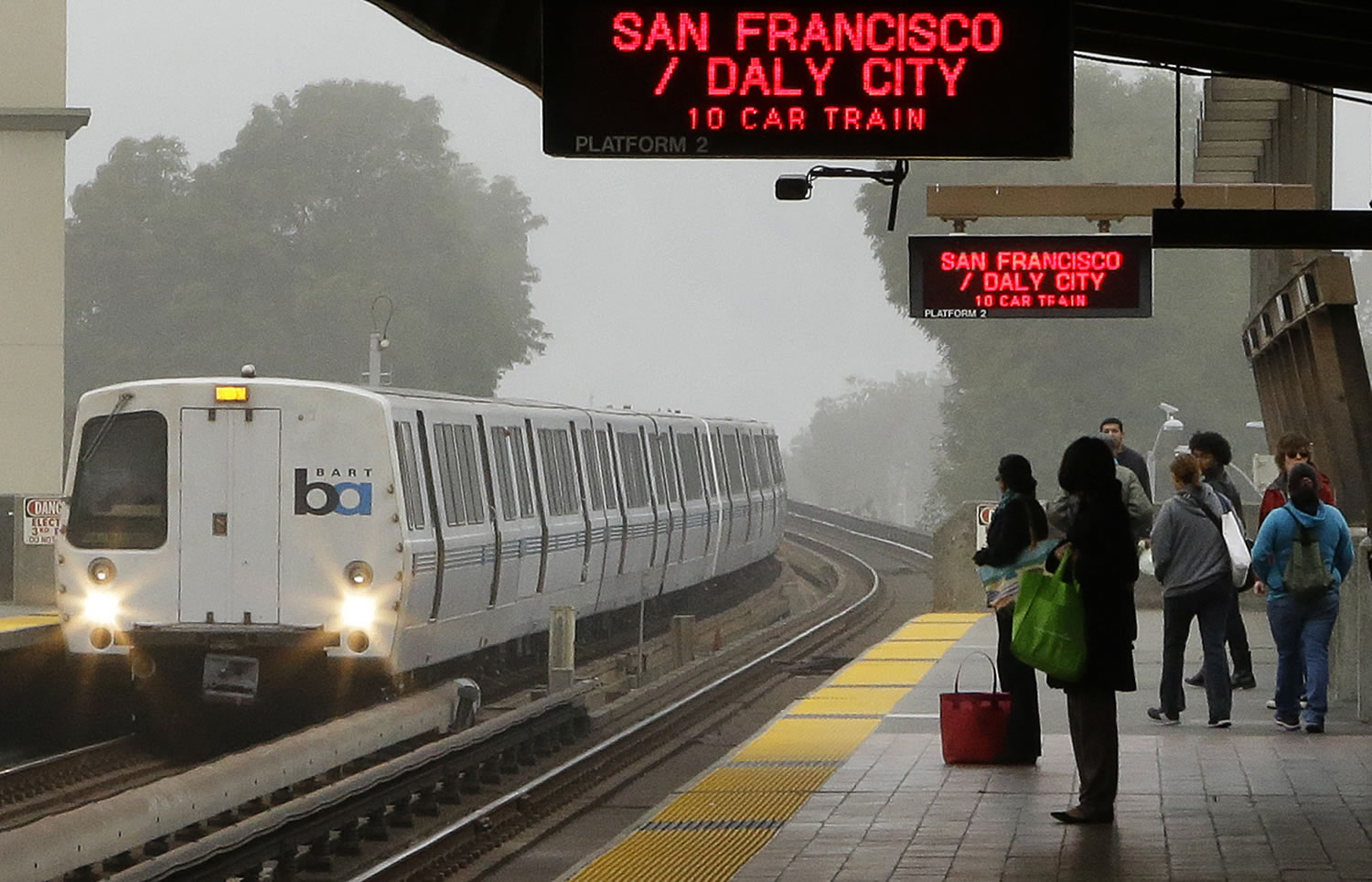OAKLAND, Calif. — It took months of tortured talks, two strikes and the deaths of two workers for San Francisco’s transit rail workers and their employer to finally agree on a contract that got trains running again Tuesday.
The saga left commuters fuming and both sides bruised. A state lawmaker is considering introducing a bill that would ban public transit strikes.
The tentative agreement between unions and Bay Area Rapid Transit came together quickly late Monday, just two days after a pair of transit workers were killed by a train operated by a trainee BART employee. The deaths shook both sides and helped get them back to a negotiating table they had deserted Friday.
The accident made it “more difficult for BART management to maintain a very hard line and not accept any kind of compromise,” said John Logan, an invited observer to the bargaining sessions who is director of Labor and Employment Studies at San Francisco State University.
Logan added that the unions “did not want this strike to go on and did not see it as in their interest,” partly because the public seemed to be blaming workers rather than management for the disruption to their lives.
Commuters who had faced traffic jams, crammed buses and crowded ferries gave a collective sigh of relief as train service resumed, carrying passengers across the sprawling region.
Hayward resident Meshe Harris, who has no car, was among the thousands of commuters who closely followed the talks. She had a job interview Tuesday and needed service to resume so she could get there.
“I was hoping, thank God, that it was going to be running soon,” she said.
The tentative contract deal, announced by BART and its two largest unions, requires approval from the rank and file and BART’s board of directors. Both sides said they had made concessions.
“This deal is more than we wanted to pay.” said BART general manager Grace Crunican, declining to elaborate.
A third union, representing about 200 workers including financial analysts and people who monitor trains from a command center, is still negotiating with BART.
“We seem to be moving toward a solution,” said Melissa Miller, secretary of the American Federation of State, County and Municipal Employees local 3993.
The BART dispute has prompted two area Democrats to weigh in against transit strikes. State Sen. Mark DeSaulnier, D-Concord, said he was looking into legislation to prevent future strikes. And Orinda City Councilman Steve Glazer, a candidate for state Assembly and former adviser to Gov. Jerry Brown, is calling for a transit strike prohibition because such labor actions “cripple our economy, hurt workers’ getting to their jobs, limit access to schools and health care, and damage our environment.”
The breakthrough came after the worker deaths in Walnut Creek on Saturday. By Sunday, union leaders said they were ready to make concessions. By Monday, both sides agreed to sit down and a deal was struck in time to get limited train service running for the Tuesday morning commute.
“When that happened over the weekend, they realized this thing had to end,” said Amalgamated Transit Union international president Larry Hanley, whose union represents BART train drivers and station agents.



